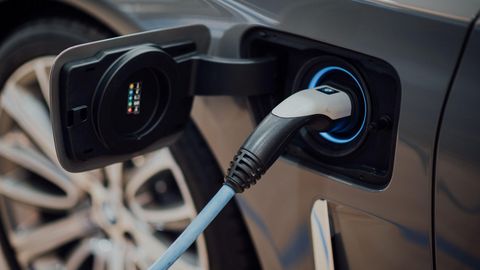Members
Electric cars: an ideal way to sweeten employee benefits without breaking the bank on pay rises

With inflation in the UK running in excess of 10%, employers are struggling to give pay rises to match spiralling costs. At the same time, the labour market remains tight, making it imperative for employers to retain their best employees.
So how can employers keep talent on board when they are unable to give bumper pay rises? Sometimes it is necessary to be creative with employee benefits. One way to do this is by offering employees something aspirational, such as the chance to have an electric car.
Katie Maguire, employment partner at law firm Devonshires, sheds some more light on how companies can put this into practice through salary sacrifice schemes.
Salary sacrifice
Introducing an electric vehicle salary sacrifice scheme to your employees’ benefits package is a great way of keeping your workforce satisfied while not breaking the bank through pay rises. Such schemes have mutual benefits for both employers and employees, whilst at the same time promoting sustainability by encouraging employees to reduce their carbon footprint.
An electric vehicle purchased through a salary sacrifice scheme is essentially a company vehicle, which the employer leases from a supplier and then rents to an employee. Whilst the employee does not technically own the vehicle, any payments made are put towards the final cost of the vehicle.
There are many companies that employers can sign up to at no cost. The employee then has to choose which electric car they want.
Payments are deducted straight from the employee’s gross monthly salary. By forgoing a portion of their gross salary, the employee’s monthly take-home pay is reduced, which subsequently reduces their income tax and National Insurance payments.
What are the benefits?
Employers also benefit from a reduction in the employee’s net take home pay, as a reduction in salary means a reduction in National Insurance contributions. Money that would usually go straight to HMRC goes towards car payments instead.
The employee benefits by reducing their carbon footprint and having a vehicle that they can use for pleasure as well as business. The payments that the employee makes towards the salary sacrifice scheme will also cover road tax, insurance, servicing, and maintenance and breakdown cover.
For employers, offering this benefit at no extra cost will not only enhance their ability to attract and retain staff, but will help their employees to reduce their fuel costs and in turn reduce fuel expense claims.
What is there to lose?
The only potential drawback is that employees may see little benefit in joining an electric vehicle salary sacrifice scheme unless the employer provides a means for them to charge their vehicles whilst at work. This may place pressure on an employer to install charging points at its offices, which can be a costly process.
To reduce costs, the employer may be able to access UK government grants through the Workplace Charging Scheme. These are capped at £350 per charging point up to a maximum of 40 charging points per business.
Whilst individuals may dream of owning an electric vehicle, their relatively high cost often makes this impossible. A salary sacrifice scheme allows employees to access a benefit that they may not otherwise have been able to afford. For the employer, introducing the scheme may just be the sweetener that encourages employees to stay, while costing very little to implement, making it the perfect way to avoid inflation-busting pay rises.
Devonshires is a ‘full service’ law firm. From offices in London, Leeds, Birmingham & Colchester, legal services are provided throughout the UK, with clients ranging from some of the world’s largest multi-national corporations to private individuals.
Clients include a significant number of charities, housing associations and regulators, and Devonshires has specialist expertise in Commercial/Corporate, Civil Litigation, Housing, Employment, Real Estate & Projects & Property Development.
Over the past few years Devonshires has grown significantly and now has over 300 staff, including solicitors and support staff in one 'hub of expertise', which enables teams to collaborate and deliver high-quality, practical advice utilising advances in technology and communication.
